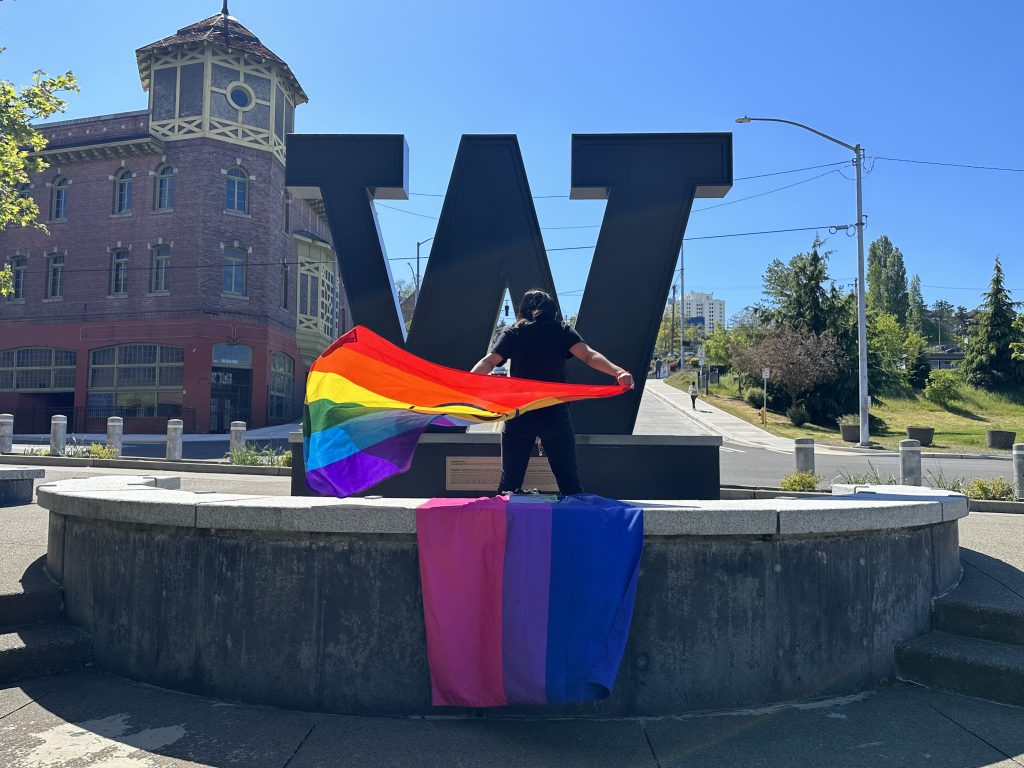Performative ally season is on the horizon
With Pride month around the corner, the LGBTQIA+ community prepares to see hypocrisy from major companies claiming to be allies.
Summer being right around the corner brings many celebrations to the region. One of the most anticipated summer celebrations is the yearly LGBTQIA+ celebration known as Pride in June. June is widely known as Pride Month due to the huge number of celebrations happening nationwide. Pride month is a big deal to many since this is the time the community can celebrate our sexuality and show those against us that we aren’t leaving- we are human beings and have the right to exist.
Pride month is also the time the community makes demands to have basic human rights and equality like marriage rights, having gender-neutral bathrooms available in public spaces and providing more support to LGBTQIA+ youths. However, Pride is also the time of year when performative allyship appears in record highs from major companies and industries by selling rainbow merchandise or simply putting a rainbow logo, which leaves a bitter taste to many.
The conversation about performative allyship is one the LGBTQIA+ community is consistently having. For many years the community has felt on the fence towards corporations showing allyship during Pride through their merchandise, because it is only in June that companies show their allyship but stay quiet the rest of the year.
Some community members are okay with this because it is a form of acknowledgment, while others aren’t because companies are only seeing the community as a form of quick and easy profit due to the lack of support found in prior years. But the majority are stuck in the middle.
One these people who are in the middle towards such actions is UWT student Mattley Minor who identifies himself as gay man. He says although it is empowering to see companies sell merchandise that show support to the community, at the same time he knows these are only surface level actions.
“You just know the type to probably hire one gay person to meet their diversity quote and say their allies,” Minor said.
Surface-level actions don’t do much in helping the fight for equal rights, but help companies save themselves from backlashes. For last year’s Pride performative allyship was very obviously seen from major retail store Target. The company stepped down from their so-called allyship due to the massive pressure they received from conservative groups, as Vox magazine recalls.
Target specifically got many threats from these groups for selling Pride merchandise, which caused them to remove the merchandise from stores and have only a few available online to avoid any more backlash. Seeing such backlash, other companies didn’t even put up their rainbow themed logos out of fear.
But once again, last year’s actions with Target just prove that companies don’t see us as humans who are struggling for our existence, but as numbers to fill up their pockets and meet quota. This feeling of not being seen as a human being is something anonymous bisexual UWT alumni from the class of 2021 agrees with.
As someone who doesn’t feel safe coming out to certain people in their life, this action of Target stepping back frustrated them.
“I could literally be thrown out of my house and disowned if came out fully,” said the anonymous student. “And yet these companies put on rainbow flags and sell rainbow themed items wear my identity like a costume for June then take it off when it no longer suits them. There is no taking it off for me no matter how much I wish I could.”
Minor agrees with this student.
“True allyship is consistent in addressing systematic issues,” said Minor. “Whether based on race, gender, or sexuality, allyship to me is recognizing and actively working to dismantle systems of operations. For Target, that is not an allyship. That’s seasonal marketing.”
An article in Harvard Business review by Lily Zheng echoes exactly what Minor stated by reminding companies that a simple rainbow logo doesn’t make them an ally. Zheng states many ways companies can show true allyship like doing year-long investments into the community and organizations that support LGBTQIA+ and advocacy. This is something both interviewees agree with and desire to see.
As someone who identifies as bisexual and comes from a minority community that has faced many different types of segregation and oppression, I can confirm that allyship isn’t meant to be comfortable. If you claim to be an ally you need to be comfortable with being uncomfortable, because the community you’re supporting has been uncomfortable for many years with the treatment they receive. And unlike you, they can’t walk out of the discomfort easily.
Being uncomfortable allows you to understand the struggle and use your power to amplify their voice to be heard by those in control of the system. By not running away from the discomfort you prove you’re an ally and that you’re staying through thick and thin with the community.






